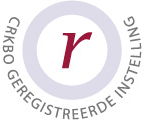Effective supervision 3
This training helps supervisors and promotors of PhD students to make supervision effective and easier. Effectively, this training has proven to make supervision more relaxed and to save time.
The key factors causing frustration, delays, miscommunication, and lack of progress can easily circumvented. That is, provided you invest in the start-up, make clear agreements and express expectations, manage and delegate the planning, coach effectively and make management decisions.
You want PhD students who become independent and self-sufficient researchers, who are happy, give you results, and finish on time. This course helps you to do that.
Each one-day workshop starts with sharing experiences, some theory and exercises. In the afternoons, we practice applicable situations with a professional training actor. We adjust these situations and the contents of the workshop to your intakes forms, which you are requested to fill in before the workshop.
Part III: finishing the PhD project
Make sure the project ends, with quality work and little delay! The goal of the PhD project is contributing to science, educating the PhD candidate, and his/her timely graduation. This phase need not be stressful to supervisors and PhD candidates. Wrapping up the project demands a timely and sharp look at the end criteria (contents of the thesis, publications, etc.) and following formal procedures. It also takes communicating with all project partners involved (e.g. manuscript committee, promotor, partners, industry, etc.) and coaching the writing process. We briefly devote attention to supervising the PhD student to the “afterlife”: do you want them to stay as post-docs, or how can you help them to a next job? We practice situations with a professional training actor that helps you lead the PhD candidate and the project to successful completion.

